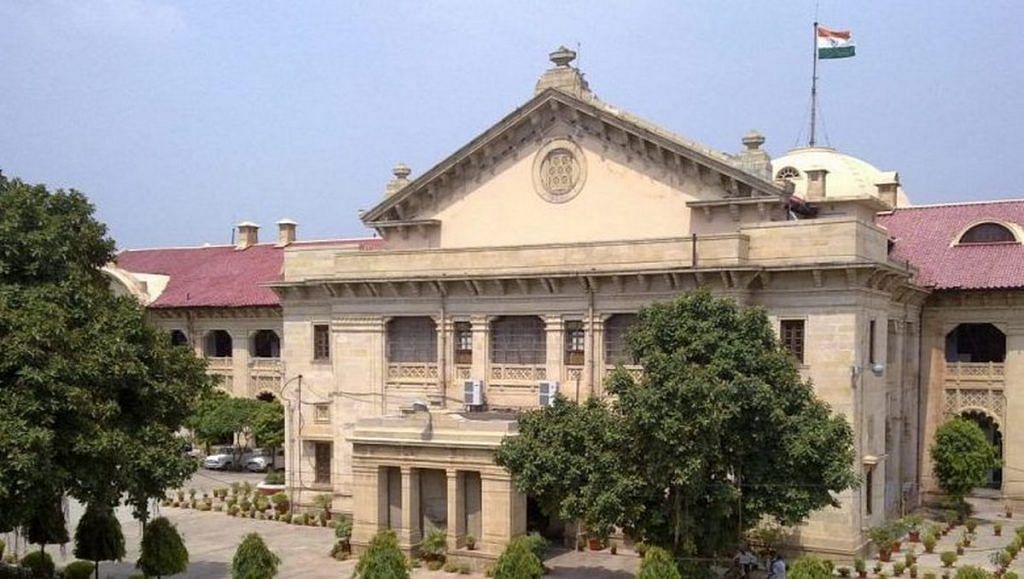New Delhi: Civil judges and judicial magistrates in India are too young and, consequently, lack “significant life experiences”, a report released by think-tank Vidhi Centre for Legal Policy has found.
The report, titled ‘Schooling the Judges: The selection and training of civil judges and judicial magistrates’, was released late last month, and it called for a debate on whether the country wants young candidates being appointed to this “crucial office”.
“Not only are such candidates likely to have little to no experience at the bar, they are also unlikely to have significant life experiences having lived a sheltered experience with their parents or on a university campus,” it said.
The report cited the average age of new judges in the UK to make a comparison.
While the average age of new judges in India was found to be 26-27 years in all states except Kerala, where it is 33 years, the average age in the UK is 58.8 years, according to the report.
In the UK, only 1 per cent of the approximately 15,000 magistrates were found to be less than 30 years of age, the report said.
Law graduates in India can apply for the post of the civil judge and judicial magistrate right after completing their graduation without any experience of legal practice.
Also read: Not just Arun Mishra, these 6 SC judges have also lost their cool in court in recent years
Report on 2002 SC judgment
In India, there used to be a three-year prior legal practice requirement to apply for the post of civil judges and magistrates. However, this was struck down by the Supreme Court in 2002 in the case of All India Judges’ Association and Others V. Union of India.
The court had then observed that the “best talent” was not being attracted by judicial services and that a “bright young law graduate” does not find judicial service “attractive enough” after three years of practice.
Due to this judgment, the Vidhi report said, it has become “quite common for extremely young law graduates with no experience practising law… to join judicial services”.
Need to evaluate the functioning of judicial academies
The report found loopholes in the current system of training being imparted in the judicial academies, claiming that most of them “lack the faculty required to deliver a structured induction training programme for new judges”.
“Even though all the high courts have managed to ensure the construction of state judicial academies, actually providing meaningful induction training to new trainees has proved to be a challenge,” it stated.
As for state judicial academies, it suggested that they need to function and develop independently if they are to “mature into respectable institutions of learning”. It also highlighted the need to evaluate the functioning of the judicial academies. Currently, the state academies function under their respective high courts.
Candidates at the academies should also be evaluated on the basis of their performance as well as their clinical or practical training, before they are allowed to hold court, according to the report.
The report further recommended that state governments and high courts should consider overhauling their respective judicial service rules to ensure that merely clearing the judicial service exam and departmental exam isn’t enough to become a judge.
Judiciary needs ‘fresh blood’
Former judge Bharat Chugh said the question should instead be whether we are attracting the best talent.
“There is a need for a certain amount of fresh blood in the system. People who have that idealism that’s needed to change things and freshness of perspective. People who aren’t so set in their ways that they can’t innovate. After all, sometimes it takes an outsider to come in and look at things in a different light and help us see things better,” Chugh, partner at law firm L&L Partners, told ThePrint.
“This is not to suggest that experience isn’t valuable but the lack of litigation experience is offset in a lot of ways by good training at the academy,” he added.
Chugh also said the one-year training at judicial academies does impart value education.
As for attracting better talent, he said, “I think we need to get the best talent by making judicial services the most attractive career option and ensure that a young judge stays motivated and driven by improving service conditions — not only in terms of the work conditions but also by keeping them mentally engaged with stimulating assignments so that they don’t feel that they’ve hit the glass ceiling and they continue to grow intellectually.”
Experience benefits new judges
Speaking to ThePrint, Balram Gupta, director (academics), Chandigarh Judicial Academy, said while the requirement of experience is essential and would benefit new judges, it should be “enforced effectively”.
Gupta claimed that the requirement of experience was a formality as most lawyers who receive their licence to practice would spend three years preparing for the judicial services exam instead. This, he said, would render the entire exercise futile.
Delhi-based criminal lawyer Ajay Verma also felt that prior experience in legal practice provides better exposure to new judges.
“But in terms of efficiency, we do have a lot of youngsters coming in these days with good research abilities and legal acumen,” he added.
Also read: ‘Sorry that SC has to resolve this’: Judges on national, Bengal child rights panels’ tussle
